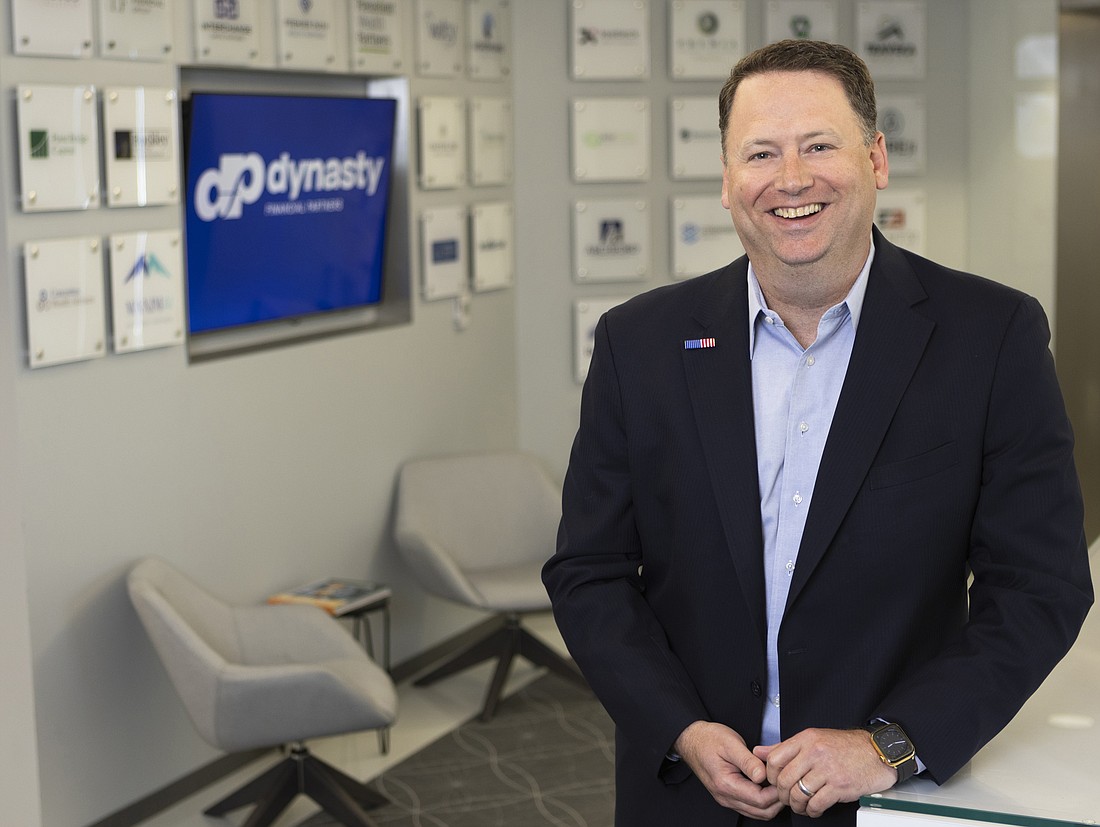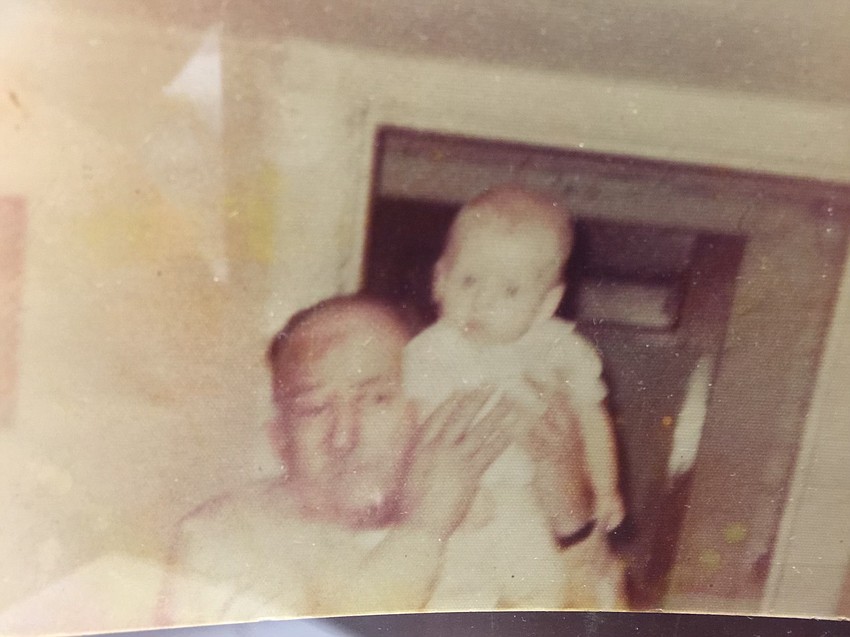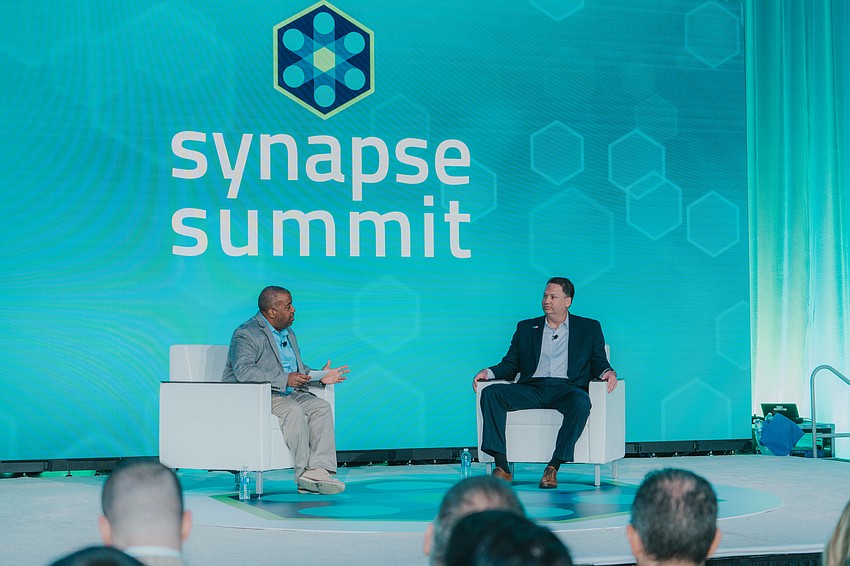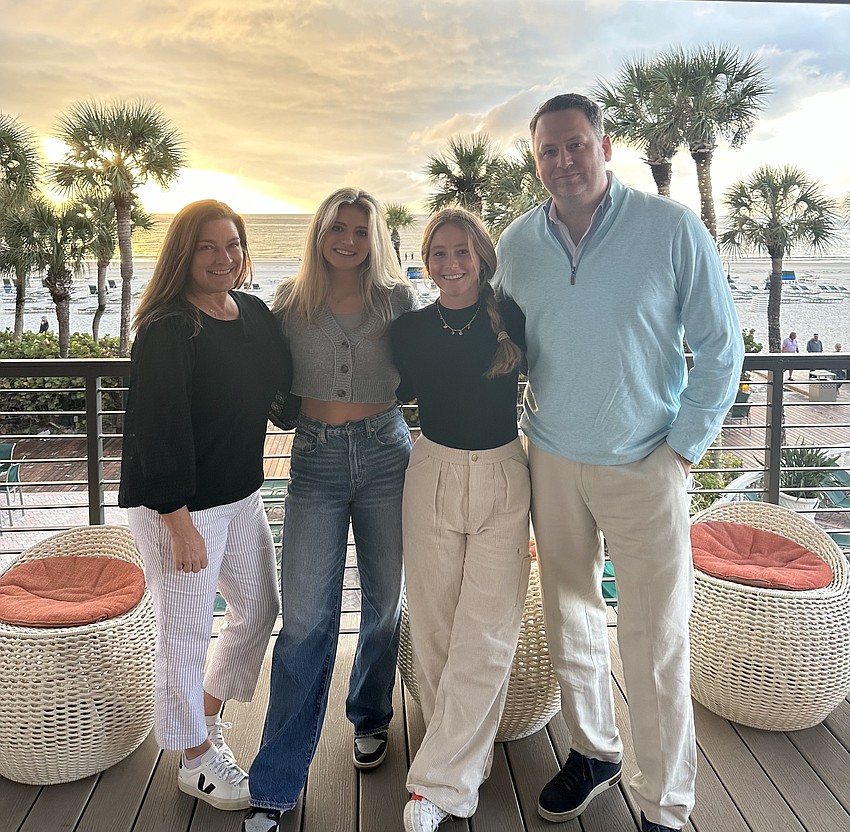- April 9, 2025
-
-
Loading

Loading

Shirl Penney was born in Eastport, Maine, when his mother was 16.
Chances are, he says, she would have put him for adoption if not for his step-grandfather, Clarence Townsend, who took him in. The man was 60 years old, completely broke, handicapped and only had a fourth-grade education.
“He said, 'I couldn’t live with myself if this kid went to live in an abusive home,'” says Penney, 47. “So, he took me home and we lived in this little 300-square-foot home. And I can tell you, being cold and hungry, it's a great motivator.”
Indeed it is.
Penney, whose rags-to-riches life story is worthy of a Frank Capra film, is the founder, president and CEO of Dynasty Financial Partners, a St. Pete-based services company for independent wealth management advisory firms that has about $90 billion in assets under administration. He started it in 2008.

He built the firm after a decade-long career at New York’s Citi Smith Barney, and moved its offices to Central Avenue in St. Petersburg in 2019. Dynasty has grown 300% in the past five years and is set to hit its goal of $100 billion in assets under administration by July.
Penney (whose daughters Townsend and Ann Clare are named for his grandfather) spoke about growing up in the small fishing village and shared the lessons he learned Feb. 28 at the Synapse Summit, an all-day innovation conference held at Amalie Arena in downtown Tampa.
He was a keynote speaker at the event, sitting down with Ernest Hooper, chief communications officer at the United Way Suncoast and a former Tampa Bay Times columnist.
The pair discussed Penney’s upbringing, lessons learned from the hardships and how he has applied them as he built his company. He also gave the budding entrepreneurs, students and well-established industry leaders in attendance advice on what it takes to build a business.
“I love being in a room like this because it's so representative of the American dream,” he says. “We're all living our own version of the American dream and I'll share a little bit about my background in hopes that maybe it inspires someone, maybe one of the students, or it encourages someone that regardless of the odds you can take your shot.”
Edited excerpts of the conversation:
“I remember we would fill the house to the extent we could with wood. And then in the wintertime, we slept in the same old double bed and took turns every two hours getting up and feeding the woodstove so that we could stay warm. I never had a shower until I was 16. We would bathe in the sink. That's all we had. And when I was 12 years old, the house literally fell down and was condemned and I was homeless for three years.
“As we all know, it takes a community to raise a child and the community really stepped up in a meaningful way. In wintertime I would stay with different neighbors. The local pizzeria would let me come in to clean up and they would give me food. Coaches encouraged me.

“I asked if we could start a stock market club. My graduating class was 24 kids, but the teachers actually created classes just for me to learn economics before I went off to college.
“Senator (George) Mitchell was Senate Majority Leader when (Bill) Clinton was president. He’s from Maine, heard my life story and spent time mentoring me.
“I’m just the product of a great community. A product of great mentorship.”
“My grandfather was definitely my hero. He taught me integrity, the value of the dollar.
“It turns out being homeless is actually great training to be an entrepreneur because it teaches you capital stewardship and having to do more with less. So, I wouldn't change anything, candidly, in terms of how I grew up.
“I went off to Bates College, which is in Maine. It was important to me to stay close to home. Fortunately, I did because the day before I graduated from college, my grandfather died in my arms. He died of cancer and never got to see me go off to New York and become an entrepreneur and, most importantly, never got to meet my wife and my kids. But he's with me every day.”
“I bought a suit for $13 at the Salvation Army. Thirteen dollars. It had a hole in the crotch and I rode a bus from Bangor, Maine, through Boston, all the way to New York. At that point in my life, I had never seen a revolving door or an escalator coming from the sticks of Maine down to New York.
“I fought through that and had an interview where I just said I'm not the smartest person in the room, but I will outwork anyone — my work ethic, high integrity, focus on doing the things that other people oftentimes didn't want to do. And they said, ‘Great, come back next week for a second-round interview.’ And I said, ‘You have no idea what I had to do to get here.’
“I was 22 years old and they flew me back from Bangor for the second-round interview and I got hired."
“I speak a lot at various schools and I encourage young people to focus on what you learn not what you earn. If you can, get in a situation where you have great mentors and people who care about you even if you have to make a few $1,000 less for that opportunity. The first couple of years of your career are the most important.
“The second thing I would say is always be the person that's willing to do the things that no one else wants. Whether it's staying late, taking a red eye trip, doing a PowerPoint, doing an Excel spreadsheet. Make yourself indispensable by doing the hard things that no one else wants to do. That was a big part of why I was successful at Smith Barney.
“Here I was, literally standing in line as a kid waiting for a block of government cheese and only a handful years later I was 28 years old running private wealth at one the largest financial firms. I'm telling billionaires how to invest their money, which was pretty profound.”
“What will determine the success of pretty much any new venture is quality planning, quality of the team and do you have the capital that you need. And timing. Timing is not just in the market it's also timing in your personal life.

“But in terms of tangible, actionable items for entrepreneurs, No. 1 I would say is build an economic model. A lot of us focus on a business plan. But an economic model looks at our business based upon revenue, not time. So where's our business going to be at a million dollars in revenue, five million, etc. It’s really important to know your numbers. Unfortunately, a lot of entrepreneurs that I mentor or spend time with aren't living in the numbers. You really have to know your numbers. You have to understand operations for the business.
“And then the other one, which is maybe more simple, is get yourself a chief of staff. I've had eight of them over the course of my career and they’ve all moved on through the organization. A chief of staff gives you tremendous leverage as an entrepreneur. Over half of the emails that come to us we don't necessarily have to see or respond to. Having a chief of staff can give you massive leverage to free up your time, oftentimes to work on more important initiatives within the business.”
“You have to set goals and objectives and make sure your whole team understands the numbers. And sometimes you have really good people in the wrong roles and the result of that is you don't hit those goals.
“It's important that you're talking about it frequently as you're growing the business so that no one's surprised. But when you have a good person in the wrong role sometimes you have to make a change. And there's no question the hardest part of leadership is making a change, especially those of us who have businesses that are evolving from really being a family type business to scaling and professionalizing and building a larger business.
“Most people are relieved. They don't want to be in a job they're not good at. But the important thing is you're not surprising them, you're over-communicating around that issue. And when you make a move, make sure you do it with dignity, allowing them oftentimes to control the message and helping them find their next opportunity.”
“It’s really hard as an entrepreneur, as a business builder, to make change when things are going really well in business. And our business was exploding year after year. But I felt, and our board of directors felt, that we were a little long in the tooth in terms of the bull market. And if you think about our business as a wealth tech business, we really focus on our capital. One of our biggest expenses on the fixed costs line is our people, as well as real estate.
“I find that the best businesses do the really hard things when things are going well. That puts them in a position to win disproportionately when things aren't going as well.
“So back in 2018, we started a journey looking at different places to do business. My wife and I did 40 trips with a leadership team. We looked at all the cities that you read about or hear about: Nashville and Charlotte and Austin. We looked at Lexington, Kentucky, and had the governor with his whole cabinet show up and try to recruit us there. And we looked at the other side of the state here. But we kept coming to the Tampa Bay region and to St. Pete. I felt like we were getting a community bear hug. Across the board, every time our team came down here, it just really felt like home.
“We went down the road less traveled. I tell you, it's harder. I went two years, seven months and four days — my wife Mary Ann kept track of how long — without a paycheck. I just didn't want to give up control. And we ended up raising capital from individuals who were going to be hugely supportive. It wasn't just passive capital. They're really contributing their time and talent.
“We've done six capital raises. Our last round we did take a small piece from a private equity firm (Abry Partners) where I knew the principals for a long time. We also sold a small piece to Charles Schwab, who is the biggest custodian player in our space. But we did it in the same way that I did it 14 years ago.
“And I think it goes back to those lessons learned earlier in life from my granddad about never borrowing more than you can afford to pay back. Never spending more than you can afford. Don't get over your skis. This allows you to determine more of your destiny as you're building your business.”
Update: This story was updated to clarify a quote and to name the private equity firm that invested in Dynasty.